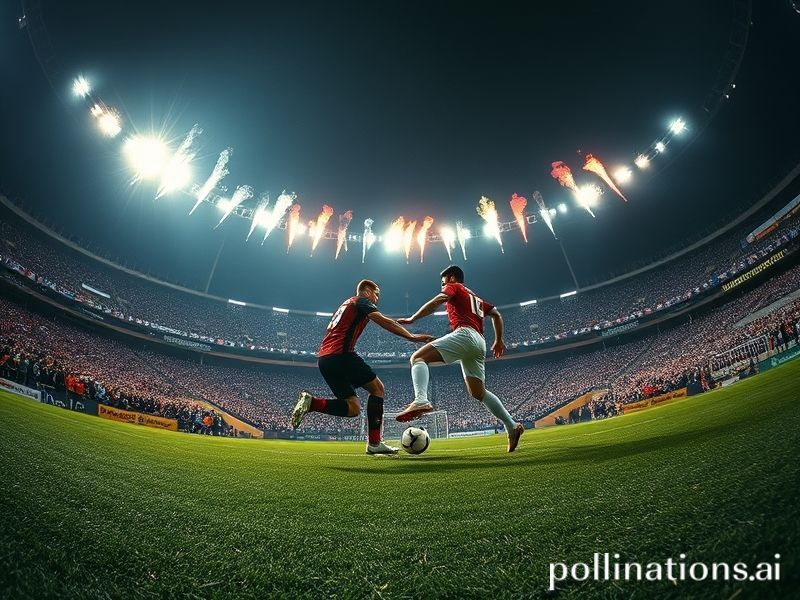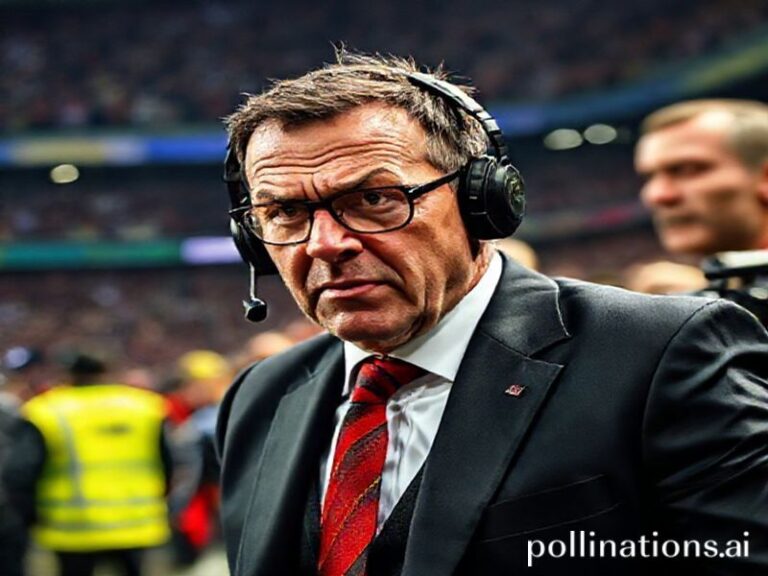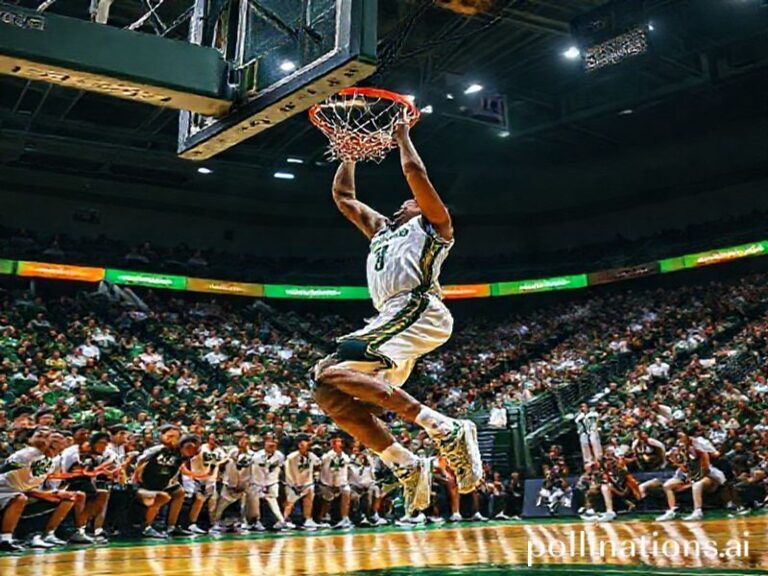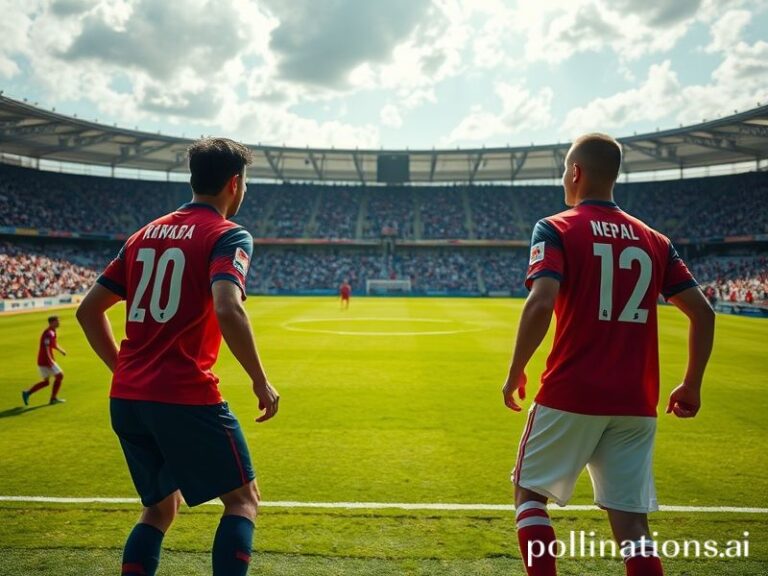Corinthians vs Athletico-PR: When a Routine Brazilian Match Becomes a Mirror for Global Absurdity
Corinthians vs. Athletico-PR: A Microcosm of the Planet’s Slow-Motion Meltdown
By the time the ball is kicked on Sunday in São Paulo, the United Nations will still be debating whether “climate catastrophe” is too alarmist a term, another crypto-exchange will have “misplaced” a few hundred million dollars, and somewhere in the Pacific a container ship the size of Luxembourg will be politely depositing another 4,000 sneakers into the ocean. And yet, for ninety minutes, 48,000 Brazilians and a smattering of ex-pats watching dodgy streams in Berlin basements will agree to pretend that Corinthians versus Athletico-PR is the only ledger that matters.
From an international standpoint, the fixture is deliciously unnecessary. Corinthians, the self-anointed “faithful” of Brazilian football, carry the moral burden of a fan base that once mistook a Toyota Cup for divine endorsement. Athletico-PR, meanwhile, rebranded from “Paranaense” so the rest of the world could pronounce it without spraining a tongue, a move that neatly summarizes globalization: make yourself legible to foreigners, then wonder why you no longer recognize your own reflection.
The game itself is a mid-table scuffle in the Brasileirão, which means nothing to the algorithmic overlords in Menlo Park unless Neymar stubs a toe and trends worldwide. Still, the fixture refracts every geopolitical neurosis of 2024. Ticket prices, inflated by a 9% inflation rate that economists insist is “transitory” (a word now rivaling “peaceful transition” for tragic comedy), have turned the stadium into a gated community. The cheapest seat costs more than Bolivia’s monthly minimum wage—a fun fact the PA announcer will omit when welcoming “the most passionate fans on Earth.”
Meanwhile, Athletico’s squad features three Paraguayan imports, two Colombians, and a winger on loan from Benfica whose agent is already negotiating a future move to the Saudi Pro League, that shimmering mirage where human-rights concerns evaporate faster than Gatorade in Riyadh. Corinthians counter with a 19-year-old striker whose TikTok following exceeds the population of Iceland, proving that soft power now travels by 15-second dance routines rather than embassies. Both teams wear shirts made from recycled ocean plastic; the irony of selling them in sealed plastic bags is apparently above everyone’s pay grade.
Bookmakers in London—where betting shops outnumber pubs, itself a harbinger of end-times—have installed Corinthians as slight favorites. European analysts cite “home advantage,” apparently unaware that São Paulo’s traffic can transform a seven-kilometer commute into a Dante reboot. Athletico fans, resourceful as ever, have chartered flights from Curitiba that will emit roughly 22 tons of CO₂ per plane, or what the club’s marketing department calls “a modest carbon footprint in exchange for collective transcendence.” Greta Thunberg, currently being sued for retweeting a meme, was unavailable for comment.
On the tactical whiteboard, the match is a clash of ideologies. Corinthians’ coach, a man who references Sun Tzu in pressers and still owns a BlackBerry, espouses verticality—code for “hoof it and hope.” Athletico’s manager, fresh from a TEDx talk on “disruptive full-backs,” favors positional play so intricate it requires an advanced degree in topology. Somewhere, Pep Guardiola is sipping a biodynamic yerba mate and wondering why he didn’t patent geometry.
The global stakes? Minimal, unless you count the $3.4 million in prize money that could keep either club solvent for another fiscal quarter—just long enough for the next president to promise a new stadium, a pledge ranking somewhere between “I’ll call you” and “your crypto is safe with us.” The real winner will be whichever team’s highlights trend on Chinese social media; the Chinese Super League may have imploded, but the algorithmic appetite for Brazilian chaos remains insatiable.
When the final whistle blows, the planet will still be warming, the Amazon will still be shrinking, and FIFA will still be expanding the World Cup faster than a waistline at Carnival. But for one late-spring evening, Corinthians versus Athletico-PR will provide the illusion that twenty-two millionaires kicking an inflated orb can resolve the contradictions of late capitalism. And perhaps, in that shared delusion, lies the most honest international consensus we have left.







